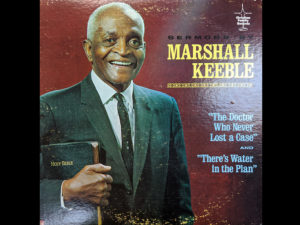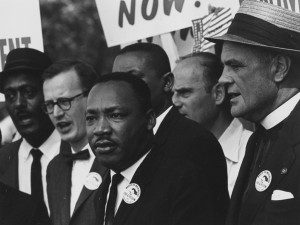A Short Time
 In Acts 26, Paul continues the same pattern that he has throughout his trials. He tells the story. This time with King Agrippa, he tells the story of Jesus and how coming to know him has changed Paul’s life. Although Festus thinks it all sounds crazy, Agrippa seems to be intrigued by the story. He responds in verse 28, “Do you think that in such a short time you can persuade me to be a Christian?”
In Acts 26, Paul continues the same pattern that he has throughout his trials. He tells the story. This time with King Agrippa, he tells the story of Jesus and how coming to know him has changed Paul’s life. Although Festus thinks it all sounds crazy, Agrippa seems to be intrigued by the story. He responds in verse 28, “Do you think that in such a short time you can persuade me to be a Christian?”Paul knows that the amount of time it takes for someone to believe is not really an issue unless time runs out. Whether it is a quick process or one that takes a lifetime, the important thing is that a person comes to know the story of Jesus and be changed by it. No one knows that better than Paul. After living a life committed to putting an end to Christianity, he was completely changed by an encounter with Jesus. He knew that his most important task was to offer that same chance to as many people as he could. That boldness and his faith in the resurrection is what landed him in prison in the first place. But even with a lack of freedom, he saw the opportunity to keep telling the story.
Paul understands what we all should. Encountering Jesus changes people. Like Paul, we should all pray that people come to know Christ. Like Paul, we must continue telling the story as many times as we can. Like Paul, we need to understand that each person we meet is a person who needs to know the story. Paul sees that need in Jews, in Gentiles and even in the Roman officials and kings that he is called to testify before. Each of them is a soul who is valued by their Creator.
What about us? How do we see the people we encounter every day? We meet people that society says are at a higher or lower level than us. How can we relay the story of God to them? Earlier in Acts, Paul’s example is clear to prisoners and a jailer. Here it even causes a king to think about his words. A life lived for Christ does that.
What about us? How do we see the people we encounter every day? We meet people that society says are at a higher or lower level than us. How can we relay the story of God to them? Earlier in Acts, Paul’s example is clear to prisoners and a jailer. Here it even causes a king to think about his words. A life lived for Christ does that.
Let’s look for those open doors to tell the story this week. Let’s remember those open doors are often in unexpected places.
All people need to hear the story.
Brian
Good Conscience
 In Acts 24, Paul finds himself in what is quickly becoming a familiar situation: defending himself in front of religious or political authorities. This time he stands before Felix in Caesarea to state his case. After explaining where the accusations against him fall short, Paul talks in verse 16 about the way he tries to live his life. “So I always take pains to have a clear conscience toward both God and man.” However things are going for him, he wants to lead a life lived in good conscience before God. Even if it is inconvenient or takes great effort, he wants to live without regrets. Isn’t that the kind of life we are looking for?
In Acts 24, Paul finds himself in what is quickly becoming a familiar situation: defending himself in front of religious or political authorities. This time he stands before Felix in Caesarea to state his case. After explaining where the accusations against him fall short, Paul talks in verse 16 about the way he tries to live his life. “So I always take pains to have a clear conscience toward both God and man.” However things are going for him, he wants to lead a life lived in good conscience before God. Even if it is inconvenient or takes great effort, he wants to live without regrets. Isn’t that the kind of life we are looking for?Through the good and bad, the ups and downs, we want to live our lives in a way that pleases God. I think that Paul would tell us the key to that life is letting love guide our actions. That does not mean always agreeing with everyone. Paul had sharp disagreements with people. That does not mean assuming that every action people take is alright. Several times Paul lists ungodly actions to avoid. It does not guarantee a series of successes or a life of nothing but happiness. Paul gets in difficult situations because of his love for God and others. Still, love guiding our actions help us with that life lived in good conscience.
Love changes how we approach other people. Love should change how others see us. Love lets us give the benefit of the doubt. Love helps us forgive. Love allows us to live our lives in good conscience before God, just as Paul did. Paul was clearly bold, knowledgeable and driven; but all of those characteristics were built on a foundation of love for God, love for the church and love for people. When Paul faced false accusations from people who were threatened by his ability to motivate and lead, he knew he was acting in love. He knew he was pleasing God.
We should all let love be the foundation of our conversations and encounters with people this week. Let’s live lives of good conscience because we share in the hope that Paul had.
– Brian
“Above all, keep loving one another earnestly, since love covers a multitude of sins.” – 1 Peter 4:8
Marshall Keeble (1878-1968)
 On a shelf in my office, I have a record album of sermons by Marshall Keeble. His might not be a familiar name to some (especially more than 50 years after his death, but he had a great impact on the church during the 20th century. Below is an excerpt from an article about Marshall Keeble from The Encyclopedia of the Stone-Campbell Movement. I thought you might enjoy learning more about his life and ministry. His story is a great reminder that even under difficult circumstances, we can make a difference in the lives of people and in the kingdom of God. – Brian
On a shelf in my office, I have a record album of sermons by Marshall Keeble. His might not be a familiar name to some (especially more than 50 years after his death, but he had a great impact on the church during the 20th century. Below is an excerpt from an article about Marshall Keeble from The Encyclopedia of the Stone-Campbell Movement. I thought you might enjoy learning more about his life and ministry. His story is a great reminder that even under difficult circumstances, we can make a difference in the lives of people and in the kingdom of God. – BrianBorn to former slaves near Murfreesboro, Tennessee, Marshall Keeble became in time the most successful evangelist among Churches of Christ, baptizing as many as 30,000. As a youth with a seventh-grade education, Keeble labored in a soap factory until he married Minnie Womack, a daughter of minister, S. W. Womack. The newly married couple opened a grocery store in Nashville. Under the tutelage of his wife and his father-in-law, Keeble began preaching in Nashville churches by 1897, and by 1914 was traveling on his own as an itinerant evangelist while his wife minded the store.
In 1918 Keeble planted a church at Oak Grove, near Henderson, Tennessee, baptizing eighty-four persons and coming to the attention of N. B. Hardeman, influential president of nearby Freed-Hardeman College. From 1920 until his death, Keeble traveled throughout the American South and, ultimately, worldwide at the expense of Nashville millionaire A. M. Burton…In Bradenton, Florida, Keeble and his helpers baptized 115 persons in one day and a total of 286 during that campaign.
After 1942, Keeble was nominally president of Nashville Christian Institute (NCI), a private academy designed to educate young blacks for ministry and evangelism. He traveled extensively in the company of young “preacher boys” evangelizing and raising money for the school. His fees for preaching were paid directly to NCI, since A. M. Burton provided Keeble’s salary and expenses…NCI continued until desegregation and the civil rights movement had made it an anachronism; it closed in 1967, less than a year before Keeble’s death.
Keeble’s life had been hard in many ways. His first wife and all five of his children preceded him in death. He suffered indignity, insult, and injury from racists in and out of the church. Such assaults did not deter him, but neither did he resist them directly. When Keeble died two weeks after the assassination of Martin Luther King Jr., many of his white eulogists offered invidious comparisons between Keeble and King. Yet one of his “preacher boys,” Fred D. Gray, inspired by Keeble’s preaching and example, had by then become the attorney who helped overturn…segregation and discrimination in the American South, representing Rosa Parks, King, the Southern Christian Leadership Conference, and many other activists and causes in the civil rights struggle.
What Are You Waiting For?
 Last summer we looked at the first twelve chapters of the book of Acts on Sunday mornings. If you are not in our auditorium class on Wednesday evenings, you might not realize that we have been gradually working our way through the rest of the book. Last Wednesday we studied the first of Paul’s five defenses.
Last summer we looked at the first twelve chapters of the book of Acts on Sunday mornings. If you are not in our auditorium class on Wednesday evenings, you might not realize that we have been gradually working our way through the rest of the book. Last Wednesday we studied the first of Paul’s five defenses.In Acts 22, Paul tells the story of what happened to him on the road to Damascus 13 chapters earlier. He tells how he saw a bright light and was blinded. He recalls hearing the voice of Jesus. He shares about meeting Ananias and receiving his sight. In verse 16, he explains what Ananias says needed to happen next: “And now why do you wait? Rise and be baptized and wash away your sins, calling on his name.” I like the way the NIV words the question asked by Ananias: “What are you waiting for?”
For many people who stand on the verge of following Jesus, they need an Ananias to ask that question. For many more of us who have already taken that step and are living that new life, we need an Ananias to ask that question of us. In our Christian stories, the step of conversion is supposed to be the first step, not the last one. It is only the beginning of our new life, and like Paul, we need to tell the story.
I shared a statistic Wednesday night that probably came as a surprise to many people. In his book, The Unchurched Next Door, Thom Rainer writes that 8 out of 10 unchurched people in their survey would attend a church service if invited. The same survey found that only 2 out of 10 Christians invite someone to a church service each year. That’s right, only 2 out of 10 people are doing something that has the potential for an 80% success rate. I wonder how many would just be willing to what Paul did and share the story of how they came to follow Christ. As those stories connect with people, they can learn more about the story of Jesus.
Whether it’s in regard to telling the story, inviting someone to a church service or even just living out the example of Christ, the question of Ananias should be a reminder to us today. What are you waiting for?
Brian
You will be my witnesses in Jerusalem and in all Judea and Samaria, and to the end of the earth. (Acts 1:8b)
Dangerous Unselfishness
 I shared this two years ago, but I believe the thoughts are worth repeating. On Monday our nation will set aside time to recognize the legacy of Dr. Martin Luther King, Jr. Growing up in Alabama, I lived 150 miles from where he marched in Selma. For 17 years living in Arkansas, I lived 100 miles from where he was killed in Memphis. It is undeniable that he played a significant role in a time of turmoil and change. Regardless of what people may think about the man, his methods or his politics, for many he symbolizes the desire for unity, service and concern for our fellow man. You have probably heard his “I Have a Dream” speech repeated around this time of year. Below is a section of another speech he gave the day before his assassination.
I shared this two years ago, but I believe the thoughts are worth repeating. On Monday our nation will set aside time to recognize the legacy of Dr. Martin Luther King, Jr. Growing up in Alabama, I lived 150 miles from where he marched in Selma. For 17 years living in Arkansas, I lived 100 miles from where he was killed in Memphis. It is undeniable that he played a significant role in a time of turmoil and change. Regardless of what people may think about the man, his methods or his politics, for many he symbolizes the desire for unity, service and concern for our fellow man. You have probably heard his “I Have a Dream” speech repeated around this time of year. Below is a section of another speech he gave the day before his assassination.“Let us develop a kind of dangerous unselfishness. One day a man came to Jesus, and he wanted to raise some questions about some vital matters of life. At points he wanted to trick Jesus, and show him that he knew a little more than Jesus knew and throw him off base. Now that question could have easily ended up in a philosophical and theological debate. But Jesus immediately pulled that question from mid-air, and placed it on a dangerous curve between Jerusalem and Jericho. And he talked about a certain man, who fell among thieves. You remember that a Levite and a priest passed by on the other side. They didn’t stop to help him. And finally a man of another race came by. He got down from his beast, decided not to be compassionate by proxy. But he got down with him, administered first aid, and helped the man in need. Jesus ended up saying, this was the good man, this was the great man, because he had the capacity to project the ‘I’ into the ‘thou,’ and to be concerned about his brother.”
That kind of concern for brothers is something the young church at the end of Acts 2 places a lot of importance on. They learned together. They prayed together. They shared what they had. They took care of one another’s needs. Their number grew as a result.
So many of the things that God tells us to do involve how we treat each other. Honor your father and mother. Turn the other cheek. Forgive. Value others above yourselves. Love your neighbor.
To be followers of Christ we have to see every person we encounter as a valuable creation of the Father. Each person is someone that He wants to bring closer to Him. It is up to us to show them His love. It’s not always easy, and it might be a little uncomfortable. Maybe we all should develop that same kind of dangerous unselfishness that Dr. King spoke about.
Brian
Who’s Your One?
 This question has been on my mind lately. It is a question that I asked the auditorium class last Wednesday. Who’s your one? Each of us has people in our lives who are not followers of Jesus. For many of us, there is one name that comes to mind first. As each year passes, there are more and more people in our world who do not know the story of Jesus well and are not familiar with Bible teachings. As Christians, it is up to us to do something about that.
This question has been on my mind lately. It is a question that I asked the auditorium class last Wednesday. Who’s your one? Each of us has people in our lives who are not followers of Jesus. For many of us, there is one name that comes to mind first. As each year passes, there are more and more people in our world who do not know the story of Jesus well and are not familiar with Bible teachings. As Christians, it is up to us to do something about that.In the first chapter of Acts, Jesus calls on His disciples to be His witnesses in the world. That is a responsibility we now take on in 2020. But how do we do that? In his book, Everyday Evangelism, Randy Becton offers some advice on how we can become better witnesses for Jesus in our daily lives.
- Make a list of people in your circle of influence for whom you will pray.
- Seek to model a Christ-honoring life before them.
- As you interact with them, attempt to understand their world—their hopes, frustrations and fears.
- Build friendships with them and the significant people in their lives—especially their family.
- Watch for opportunities to serve the people and their families for whom you are praying.
- Seize every opportunity to tell the story of what Jesus has done for you and for them.
So, who’s your one? It may be a family member, a neighbor, a coworker or an old friend. You care about that person and you would love for them to have the gift of God’s grace that you have received. If you have not already, start praying for them today and everyday. Look for the opportunities. Be ready to tell the story.
Brian
“Go therefore and make disciples of all nations, baptizing them in the name of the Father and of the Son and of the Holy Spirit, teaching them to observe all that I have commanded you. And behold, I am with you always, to the end of the age.” (Matthew 28:19-20)
All to Us
 As I drive to the church building on Sundays, I usually listen to worship songs to help move my mind in the right direction. Over the past few months, I have been listening to the song “All to Us” on a Zoe Group album during the last part of my drive. The lyrics by Chris Tomlin tie together several thoughts from scripture (Colossians 2:9-10, Colossians 3:11, Acts 4:11-12 and much of the book of Hebrews all come to mind.) It has been a good reminder that Jesus is sufficient. As we begin 2020, let’s continue to build our lives on the foundation of Jesus. He is all to us.
As I drive to the church building on Sundays, I usually listen to worship songs to help move my mind in the right direction. Over the past few months, I have been listening to the song “All to Us” on a Zoe Group album during the last part of my drive. The lyrics by Chris Tomlin tie together several thoughts from scripture (Colossians 2:9-10, Colossians 3:11, Acts 4:11-12 and much of the book of Hebrews all come to mind.) It has been a good reminder that Jesus is sufficient. As we begin 2020, let’s continue to build our lives on the foundation of Jesus. He is all to us. Brian
Precious cornerstone, sure foundation
You are faithful to the end.
We are waiting on You, Jesus.
We believe You’re all to us.
Only Son of God sent from Heaven,
Hope and mercy at the cross,
You are everything. You’re the Promise.
Jesus, You are all to us.
Let the glory of Your name be the passion of the Church.
Let the righteousness of God be a holy flame that burns.
Let the saving love of Christ be the measure of our lives.
We believe You’re all to us.
One Dozen Ways
 As we wrap up our series on the pastoral letters this week, it is helpful to consider some of the truths that Paul taught Timothy and Titus throughout his writings. These are not only things that are important for ministers and church leaders. They are truths that can help all followers of Christ in their efforts to be more like Him.
As we wrap up our series on the pastoral letters this week, it is helpful to consider some of the truths that Paul taught Timothy and Titus throughout his writings. These are not only things that are important for ministers and church leaders. They are truths that can help all followers of Christ in their efforts to be more like Him.When I think of ministers who minister to other ministers, one of the first names that comes to mind is John Dobbs. John is the Preaching Minister at the Forsythe Avenue Church of Christ in Monroe, Louisiana. Much like Paul, John does what he can to encourage ministers in their work and faith. In his thoughts below, John shares twelve things from 1 Timothy about how to live the life God has called us to live. As you read the list, just imagine what our families, churches, workplaces and communities might look like if we could improve in these twelve ways. – Brian
In 1 Timothy Paul tells his young protégé to fight the good fight of faith. Throughout his letter there are many great teachings, but here are one dozen ways Timothy could fight the good fight of faith. This is not just advice for a young preacher, it is divine revelation for a life that exalts Christ and defeats the devil!
- Live under submission to the command or will of God (1:1).
- Find your strength in the Lord, not in yourself (1:15-16).
- Glorify God in your life and with your words (1:17).
- Remember what you’ve learned (1:18, 19a).
- Never neglect your prayer life (2:1-4).
- Train yourself in godliness (4:7b-10).
- Be an example for others to follow (4:12-13).
- Pay attention to your life, it matters (4:16).
- Be content (6:6b – 8).
- Avoid the deadly trap of loving money (6:9-10).
- Pursue the right things (6:11).
- Never give up (6:12-16).
Fight the good fight of faith!
Season of Giving
 Our society attaches significance to special days, months or times of year. After setting aside time to be thankful in late November, we enter into what is often called the season of giving. The time between Thanksgiving and Christmas tends to get materialistic if we are not careful, but generally the things we are buying are intended for others instead of ourselves. Like so many of our special days, months and seasons in America, the season of giving is designed to be a way of life for Christians. It is not something we are called to do only in December. We are to give throughout the entire year and our entire lives.
Our society attaches significance to special days, months or times of year. After setting aside time to be thankful in late November, we enter into what is often called the season of giving. The time between Thanksgiving and Christmas tends to get materialistic if we are not careful, but generally the things we are buying are intended for others instead of ourselves. Like so many of our special days, months and seasons in America, the season of giving is designed to be a way of life for Christians. It is not something we are called to do only in December. We are to give throughout the entire year and our entire lives.Some form of the word “give” appears in the Bible more than 2000 times. Giving is clearly something that God wants us to understand and do. What does He tell us about giving?
- When God’s people recognize their blessings from Him, they give back to Him. In Genesis 28:20-22, we learn that Jacob does this by giving 10% back to God. “Then Jacob made a vow, saying, “If God will be with me and will keep me in this way that I go, and will give me bread to eat and clothing to wear, so that I come again to my father’s house in peace, then the Lord shall be my God, and this stone, which I have set up for a pillar, shall be God’s house. And of all that you give me I will give a full tenth to you.”
- We should give to help those in need. In Deuteronomy 14:28-29, God gives instructions to His people to make sure those in need are not overlooked. “At the end of every three years you shall bring out all the tithe of your produce in the same year and lay it up within your towns. And the Levite, because he has no portion or inheritance with you, and the sojourner, the fatherless, and the widow, who are within your towns, shall come and eat and be filled, that the Lord your God may bless you in all the work of your hands that you do.” This is just one of many commands in scripture about giving to others.
- When we focus on things, we are not focusing on God. Jesus talks about the dangers of materialism several times. In Matthew 6:19-21, He reminds us that things are temporary and an indicator of where our hearts are. “Do not lay up for yourselves treasures on earth, where moth and rust destroy and where thieves break in and steal, but lay up for yourselves treasures in heaven, where neither moth nor rust destroys and where thieves do not break in and steal. For where your treasure is, there your heart will be also.”
- Giving is voluntary, brings joy and pleases God. “Each one must give as he has decided in his heart, not reluctantly or under compulsion, for God loves a cheerful giver.” (2 Corinthians 9:7)
- God wants us to give ourselves to Him. Paul tells us in Romans 12:1 that our very lives are to be a gift to God. “I appeal to you therefore, brothers, by the mercies of God, to present your bodies as a living sacrifice, holy and acceptable to God, which is your spiritual worship.”
- We give because God gives. The greatest Gift He has given us is His Son. “By this we know love, that he laid down his life for us, and we ought to lay down our lives for the brothers. But if anyone has the world’s goods and sees his brother in need, yet closes his heart against him, how does God’s love abide in him? Little children, let us not love in word or talk but in deed and in truth.” (1 John 3:16-18)
Let’s strive to be people whose lives are a season of giving.
Brian
Sharing Thankfulness
 There are many surprising stories in the Bible. It is a book filled with people who make choices and react to situations in ways we might not expect. Every time I read this story of Jesus healing ten lepers, I am surprised and disappointed by the reaction (or lack of reaction) from nine out of the ten people who were healed.
There are many surprising stories in the Bible. It is a book filled with people who make choices and react to situations in ways we might not expect. Every time I read this story of Jesus healing ten lepers, I am surprised and disappointed by the reaction (or lack of reaction) from nine out of the ten people who were healed.Luke 17:11-19 (ESV) 11 On the way to Jerusalem he was passing along between Samaria and Galilee. 12 And as he entered a village, he was met by ten lepers, who stood at a distance 13 and lifted up their voices, saying, “Jesus, Master, have mercy on us.” 14 When he saw them he said to them, “Go and show yourselves to the priests.” And as they went they were cleansed. 15 Then one of them, when he saw that he was healed, turned back, praising God with a loud voice; 16 and he fell on his face at Jesus’ feet, giving him thanks. Now he was a Samaritan. 17 Then Jesus answered, “Were not ten cleansed? Where are the nine? 18 Was no one found to return and give praise to God except this foreigner?” 19 And he said to him, “Rise and go your way; your faith has made you well.”
Nine out of ten did not come back to give thanks. Ninety percent. Their lives were changed forever in an instant. They went from unclean to clean. They went from ostracized to acceptable. They were untouchable and could now return to the community. It is difficult to full describe the complete change in their existence that happened that day. Only one came back to say thank you to Jesus.
Here is the problem. I do not believe for a moment that the other nine were not thankful. They knew what a life-changing event it was. They would likely tell the story to others for the rest of their lives. They would always remember that day. But they did not express their thankfulness to the One who did it.
I believe we are thankful as well. Most of us will never experience a day with a physical change like that, but we are blessed in so many ways. We need to take the time to share that thankfulness with people who are a blessing to us. An even greater gift has been given to us as we are baptized into Christ. We have experienced a change that is eternal. We are cleansed. We are accepted by God. We are in community with Him. Do we express our thanks to Him for that amazing gift? Don’t be part of the 90 percent. Give him your thanks every day. And if you have not received that gift. Take hold of it today.
Brian

